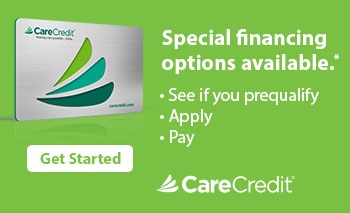Treating Depression with Transcranial Magnetic Stimulation

TMS is a medication-free treatment capable of helping 70% of people with major depressive disorder (MDD). No medication is used.
Side effects are mild and generally limited to headache and tiredness. Improvements last an average of two years beyond the end of a standard treatment course. TMS is FDA-approved for depression, covered by most insurance plans, and recommended by countless trusted sources on the management of depression.

Symptoms
Depression, also called major depressive disorder, is more serious than just “feeling down.” It can be diagnosed if you have one or both of the following primary symptoms:
- Low mood, including constantly feeling sad, lonely, worthless, guilty, fearful, or easily angered or annoyed.
- Inability to feel pleasure, or lack of interest in things that usually give you pleasure. Life feels flat, uninteresting, or empty.
Because depression is a brain regulation disturbance, there are usually secondary symptoms. These may include sleep disturbance, low energy, low motivation, difficulty functioning (at work, at home, or in relationships), decreased or increased appetite or weight, inability to think clearly or concentrate, suicidal thoughts or impulses, slower than normal body and facial movements, and body aches and pains.
Cognitive Issues
Lack of concentration is a common problem when you suffer from depression.
Sleep
Excessive sleepiness or restless sleep is another symptom common to depression.
Irritability
Another common symptom in depression is being easily irritable.
Suicidal
Daily or frequent suicidal thoughts are typical in people who suffering from depression.
Anxiety
Anxiety symptoms such as excessive crying or panic attacks are typical for people who suffer from depression.
How we are treating
depression with TMS?
TMS is a very effective treatment for depression. With just a few simple steps you can find out if you are a good candidate, what the cost will be, and what your treatment schedule would look like.
Step 1
Contact us and provide your history of depression treatments. We will interview you at no cost to see if you meet medical necessity criteria and obtain prior authorization from your insurance company.
Step 2
Come to our clinic for about 15 minutes for a 3 minute treatment five times per week, for six weeks. After each treatment session, you can return immediately to work or family life. No medication is used.
Step 3
Participate in our life skills classes, acupuncture or acupressure, and our biofeedback program sessions at no added cost. TMS works best as part of a comprehensive care package. Weekly psychotherapy with your own therapist is also strongly encouraged and typically leads to better outcomes.
Our experts
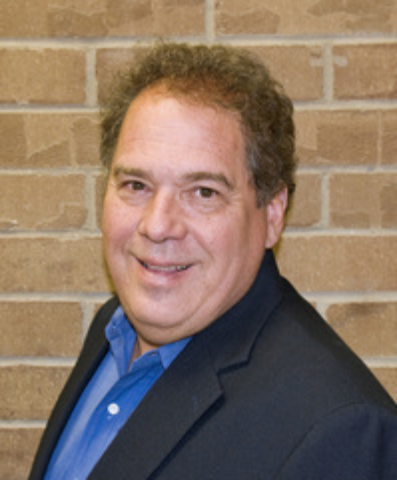
Doctors Profile
John l Fleming, MD. DLFAPA.
Medical Director of SCTMSC, LLC, John is a Board Certified Psychiatrist and a Distinguished Life Fellow of the American Psychiatric Association. He has over 40 years’ experience treating depression and related conditions and is recognized as a leader in the psychiatric profession. Since 2011 he has been a certified Provider Trainer and TMS provider for three different TMS treatment systems. His experience base includes psychopharmacology of complex conditions. psychotherapy of individuals and couples and the medical aspects of psychiatric illness. He has annually been selected by his peers as one of America’s Best Doctors since 2005.
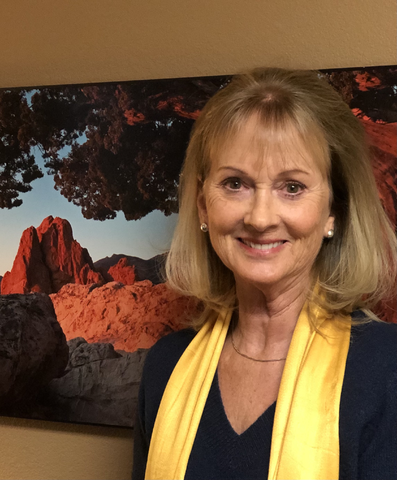
Melissa Hammock, M.A., M.Ed., LMFT
Services Director of SCTMSC, LLC, Melissa received her master’s degree in Marriage and Family Therapy from Azusa Pacific University and her master’s in special education from California State University, Los Angeles. Melissa is a Certified Life Coach and a member of the International Positive Psychology Association. Melissa is also a Certified TMS Provider.
Melissa has been in private practice in Colorado Springs since 1981, working with adults, adolescents, and couples. Melissa specializes in the treatment of depression, anxiety, ADHD, and trauma-based disorders. She has received training in EMDR, Cognitive Therapy, Family Systems Therapy, Energy Therapies, Interpersonal Therapy and Accudetox. Melissa is a Licensed Marriage and Family Therapist. She has been involved with TMS treatment since 2011.
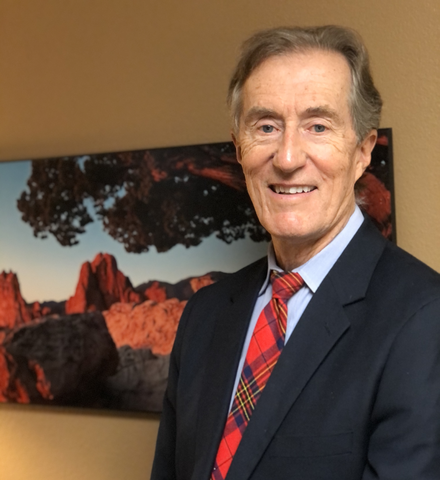
Joe Hammock, M.A., PhD, Licensed Clinical Psychologist
Clinical Director of SCTMSC, LLC and Certified TMS Provider since 2011, Joe is a licensed psychologist and member of the American Psychological Association. He is a graduate of Fuller Graduate School of Psychology, and additionally holds an MA from Fuller Theological Seminary. He is certified by the International EMDR Association and is a Certified TMS Provider.In his thirty years of practice in Colorado, he has specialized in the treatment of trauma-based disorders, depression, anxiety disorders, and dissociative disorders. He also has extensive experience in psychological evaluations, CBT, EMDR, forensic psychology, and is frequently consulted as an expert witness.
FAQ
What are the causes of depression?
Depression is an illness in which the areas of the brain regulating emotions may shrink (atrophy) by up to 30%. It can be caused by excess stress hormones, by inflammation within the body, by hormone changes, or by problems with neurotransmitters such as serotonin and dopamine. It may be a seasonal illness, linked to the time of year and duration of sunlight, or it may be present year round.
Depression may come on for no apparent reason, or it may be triggered by a loss of someone or something important. Depression can run in families, or coincide with a family history of substance abuse or other mental health issues. Depression is more common when there is a childhood history of trauma, abuse, neglect, or abandonment but most depression patients do not have such a history. Depression is more common in those with heart disease, autoimmune disease, and weight issues. One in five people who have had COVID-19 develop depression as part consequence of the inflammatory response.
Can I have other problems if I am depressed?
Many people with depression also have anxiety, substance abuse, PTSD, eating disorders, or other conditions. General health problems also become worse when depression is present. For example, people who are depressed are 40% more likely to have a second heart attack than those who are not depressed. Those who are depressed take longer to recover from surgery and have more pain after surgery than those who are not. Those with depression respond less effectively to medications for many chronic health conditions than those without depression. Depression affects your whole life: work, family, and physical health.
What are the options for treating depression?
There are many different options for treating depression, and for most people, using several options together will produce the best results. Psychotherapy or “talk therapy” is a vital component of recovery for many. Understanding how one experiences stress and loss, and how to best manage it, can be very helpful. There are several styles of psychotherapy, including insight, cognitive behavioral management (CBT), and eye movement desensitization and reprocessing (EMDR).
Pharmaceutical treatment with antidepressant medications is also common and produces positive results in about 50% to 70% of cases. Like psychotherapy, there are many different types of antidepressant medications, and it can take some experimentation to find the right fit. Common medication groups include SSRIs, SNRIs, DRIs, MAOIs, atypical antidepressants, and mood stabilizing antidepressants.
Bright light therapy involves daily use of a light box that imitates daylight. It’s especially effective for seasonal depression, but may also provide relief from MDD.
Addressing nutritional deficiencies, such as vitamin D and folate (especially activated folate or L-methylfolate), as well as any hormone disturbances, can be helpful as well.
While the above treatments have improved countless lives, individually and together, about one in three patients with depression do not respond to any combination of these options, or cannot tolerate them due to side effects that interfere with quality of life in their own right. These individuals are considered to have treatment-resistant depression and are ideal TMS candidates.
Can I be taking antidepressants and still be depressed?
Yes. One of the most common problems people face while working to overcome depression is the persistence or return of some symptoms, even while on medication. The goal of treating depression is to eliminate all symptoms, a phenomenon called remission. Instead, many people only get a response (defined as a 50% reduction of symptom intensity) or even less. Depression treatment guidelines state that treatment should be adjusted every one or two months until the best possible result is achieved. It’s important not to give up before reaching that best possible result, because the more symptoms of depression you still have, the more likely your depression is to worsen or negatively affect your physical health.
How does TMS compare to antidepressants?
TMS treatment does not involve medication. Medications circulate throughout your whole body and can cause disturbances in many of its systems. Common side effects of psychopharmaceuticals antidepressants include nausea, weight gain, dry mouth, blurry vision, constipation, low sex drive, and problems with sexual performance. TMS side effects are limited to mild headache, mild drowsiness for an hour after treatment, and a very low (1 in 30,000) risk of seizure.
TMS is also more effective than medication. Medications for depression help about 50% of the patients who try them. TMS helps 70%. Even more notably, a patient’s likelihood of success with antidepressants decreases with every medication that fails. After trying four or more antidepressants without success, the chance of the next one working is only 18%. The chance of success with TMS, on the other hand, is still 70%, even after four or more failed medications. This can make a big difference.
How does TMS compare to ECT treatment?
ECT (Electroconvulsive Therapy) is a treatment for severe depression that has not responded to medication. During ECT, the patient is given muscle relaxants, general anesthesia, and breathing assistance. A powerful current of electricity is applied to the head to induce a seizure within the brain, hence the more colloquial name, “shock treatment.” It takes several hours to recover from the seizures and anesthesia, so the patient must have someone else drive them to and from the treatment. Side effects include memory loss, which may last 4 to 12 months or longer.
By contrast, TMS treatment uses magnetic energy, not electrical impulses, to prompt healing in the brain. It takes only about three to five minutes per session and requires no anesthesia or other medications. There is no seizure induction or memory loss, and the patient can remain awake and aware and return immediately to normal activities, including driving. TMS also requires a shorter tapering process at the end of a course of treatment, and is less expensive than ECT.
What is a TMS treatment like?
You sit in a chair and watch television, or talk to the technician who will be with you the entire time. A cloth cap is placed on your head, and an MRI coil that has been adjusted to your individual measurements “is then held next to your head”. This coil generates MRI impulses just like a regular MRI machine, but instead of being enclosed in a tunnel, you are simply sitting in a chair. An inflatable neck pillow supports your head in place and helps remind you not to move during the treatment, but you are not restrained in any manner. The treatment lasts around three minutes each day. Depending on your needs, you may receive treatment only on the left side of your head, or our doctor may recommend adding right-side treatment as well. The standard course of treatment is five days per week for six weeks, followed by two days per week for three weeks. Most people begin to experience improvement by the third week of treatment.
How does TMS work?
TMS MRI treatment works based on the physics principle (Faraday’s law of induction) that a fluctuating magnetic field will generate a flow of electricity in a circuit, in this case a brain circuit. When the coil’s magnetic pulses reach the brain cells of the targeted area, these cells generate normal electrical activity, just like the activity observable in a healthy brain. The pulses from the coil only travel about an inch to an inch and a half deep into the brain, in an area about the size of a quarter. The rest of your body and brain are not exposed to magnetic energy. However, this small area is connected by groups of fibers (axon tracts) to the deeper areas of the brain that regulate mood, specifically the limbic and hippocampus systems. With repeated stimulation over a period of time, the affected brain cells become more active, behave more normally on their own, and regrow to their normal size.
What types of TMS are there?
TMS is a very flexible treatment program with a number of different protocols, machines, and approaches.
rTMS (repetitive TMS) uses high frequency magnetic energy pulses at 10 pulses per second to stimulate the brain on the left side and, if needed, low frequency pulses at one pulse per second on the right side of the brain. Treatment sessions last about 15 to 25 minutes per day.
TBS (Theta Burst TMS) uses the same type of magnetic energy, but the pulse pattern is different than in rTMS. In TBS, clusters of three quick pulses are given five times per second. This method corresponds with normal brainwave rhythm and requires both less time and less total energy than rTMS. A TBS session takes about three minutes on the left side and 40 seconds on the right, if needed.
aTMS (Accelerated TMS) refers to offering more than one TMS treatment session per day. Medical research shows that aTMS can shorten the recovery process, but most insurance companies do not currently cover this method.
mTMS (maintenance TMS) is using TMS treatments once or twice per month to prolong the effect of an acute course of TMS or TBS treatment.
dTMS (deep TMS) is a type of TMS treatment associated with the Brainsway TMS device. This machine uses a magnetic coil much like that of any other TMS machine, contained within a helmet. The manufacturer reports that the magnetic field generated by a Brainsway machine penetrates more deeply into the brain than the field generated by standard MRI coils. However, angulated TMS coils used in other devices can achieve the same depth of penetration as a Brainsway helmet. The FDA considers rTMS, TBS, and dTMS to be bioequivalent.
Should TMS be done alone or as part of a program?
The TMS machine treatments are only one part of what it takes to get better. TMS does help your brain regain normal rhythms, but other changes are necessary to support those rhythms and help them become permanent. If you’ve been living with depression or another mental health condition for a long time, you will have become accustomed to making decisions and life choices with the goal of managing your symptoms, rather than thriving. As your brain improves, you will need to alter your approach to life in order to prevent a relapse.
At the Southern Colorado TMS Center, we offer the following as part of our full treatment program: weekly life skills and decision-making classes, acupressure or acupuncture stress relief sessions, and heartmath breathing regulation training to help manage stress and anxiety. Each patient is also expected to be in individual psychotherapy during the nine-week treatment process. Your therapist will play an important role in helping you learn how to manage the new feelings that will emerge as your brain normalizes and you become less numb to your emotions.
This comprehensive plan of treatment, minus your individual therapy, is provided at no additional charge as part of your TMS experience.
Mental Health Assessment
Do you believe that you suffer from depression or anxiety? Check out our online assessments for a quick online self-assessment to see if you suffer from a mental health related issue and to see if you qualify for treatment with TMS.
What the Patients Think

Cindy – 22
The Southern Colorado TMS Center is truly the most caring, compassionate mental health facility I have ever known. You always hear stories about why people have gone into the mental health field, but these folks truly live it. Everyone who works for SCTMSC (and I mean everyone), exudes warmth and empathy. They walk the walk. One of my family members utilized several of their services, and I got to witness firsthand how they deal with patients. I would highly recommend them to anyone suffering from depression, because they not only offer treatments but expect patients to participate fully in their recovery.
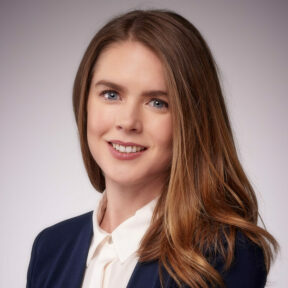
Pam – 25
Dear TMS staff, I want to express my thanks for all your sincere help while I went through a very difficult time. Every time I went to the center the staff was so kind and understanding. The educational classes in the evening were wonderful and I have learned so much about depression. I still look at the handouts you provided. I have gotten into meditation and continue to educate myself about depression and anxiety. If I watch “Friends” on the TV, I will always think of my experience at the Southern Colorado TMS Center!! Thank you for doing your job so well.
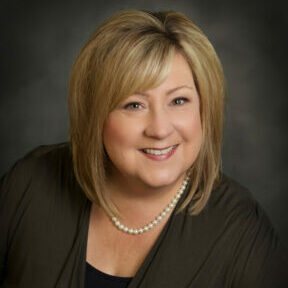
Barb – 46
All the staff at SCTMSC are very caring during all of the components of the TMS treatment. From dealing with insurance companies to adjusting one’s treatment time due to conflicts with your schedule; they are all wonderful. I would recommend TMS treatments to any person suffering MDD, as I have for many years. From my experience, TMS helped me far more than an anti-depression medication or CBT.
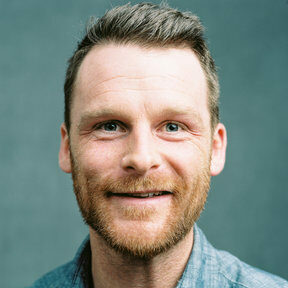
FB – 35
Dear TMS Team, I just wanted to say that 6 months after treatment, I am doing well. I have a new life and I am living it up. It is like being young again as I am finding my way again. I am so grateful to Dr. Fleming, Camice, Dawn and all the folks who helped me to get here! But especially to Dr Fleming.
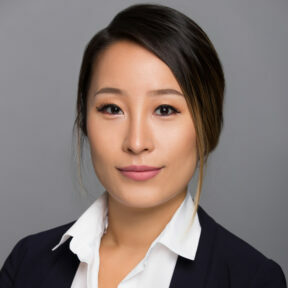
Michelle – 37
Dear Dr. Hammock, I am so incredibly grateful and appreciative for all the time and attention you gave to my husband and me. Thank you, thank you for caring so much abut the individual person. I am also grateful that you took the time to help us separate out how we view ourselves in relation to our understanding of God’s love for us verses our symptoms of major depression; neither of us had realized or thought about that. That was incredibly insightful of you and so thoughtful of you to help us get to the root of it. Thank you for helping so many people. I can tell, that you and your team do a lot of good with very sincere hearts. It shines through unmistakably.
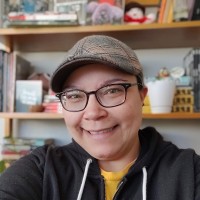
Jomaque C
I personally believe TMS should be the first line of treatment for major depressive disorder and generalized anxiety disorder – no medication changes and essentially no side effects! My treatment at Southern Colorado TMS Center is my second round of TMS therapy. The first round resolved my depressive symptoms for several years but when started feeling the depression come back, I knew exactly what to do. Southern Colorado TMS was able to get me scheduled quickly and started with therapy almost immediately. The staff worked on my behalf to have the treatment covered by insurance. I cannot speak highly enough about TMS therapy and Southern Colorado TMS. The therapy has improved my mood in just 8 weeks and the staff are top-notch! I felt welcome on each visit and appreciated the extra touches like a drink and snack after treatment. Southern Colorado TMS Staff – thank you so much for all your help!
Drug free solutions for optimized brain function
We focus on delivering real solutions for our patients. We know that patients can have real life-changing results through applying TMS.
Other Conditions
Depression in Bipolar Disease
TMS can effectively treat depression in patients with bipolar disease and reduce problems with antidepressant use.
Depression in Bipolar Disease
TMS can help by treating the “depressive phase of” bipolar disease with no medication.
Post Partum
depression
Many mothers can suffer depression as a result of hormonal changes during or after pregnancy. TMS can help treat this type of depression effectively.
Post Partum
depression
TMS effectively treats depression during and after pregnancy, without the use of medication.
Depression in
Adolescents
TMS can effectively treat depression in teens.
Depression in
Adolescents
As a teen goes through difficult changes in their adolescent years, they can experience serious depression. TMS can help teens who suffer from depression.


